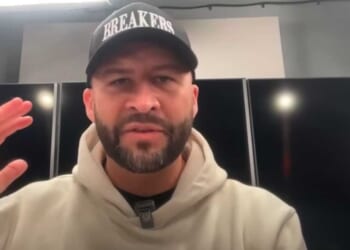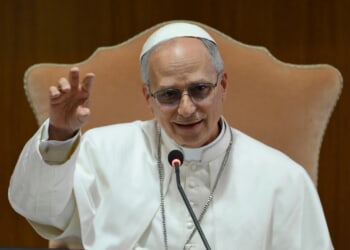A tip of the cowboy hat goes to our John Mac Ghlionn for his spot-on lament of the slow but inexorable decline of country music. Country may not be dead as a going concern, but it’s on life-support.
Mac Ghlionn is right that the beating heart of country is almost stilled, at least on broadcast radio. To some degree, as he states, this is due to soulless corporate packaging based on algorithms (one of the many techno-blights on modern life), focus groups, and other devices designed to ensure the maximum audience and the flushest bottom line for music producers. Not that these things always deliver the desired results. Authenticity and artistry mean nothing to this bean-counting crowd. Gee, Nashville seems to have asked, why not turn the production and marketing of a popular, soul-stirring form with roots in the Deep South and cowboy west over to a bunch of smart guys from New York and Los Angeles? What could possibly go wrong?
I’m comforted to know that even in the absence of a Country Golden Oldies station here, I can turn to YouTube to spend time with Reba.
Well, tune in any “country” station now and listen to the pop gruel being served up and it will be clear that a good deal has gone wrong. And judging by the diminishing audience for this mongrelized mess, this cynical marketing scheme hasn’t worked, for audiences or the producers. And the dreary business didn’t start yesterday. Here’s George Strait and Alan Jackson, two authentic country singers, now of advanced years, singing about it in a 1999 song.
Corporate depredations aside, I suspect that the biggest part of the near disappearance of the authentic country sound from the airwaves is that its main audience has moved on and has not been replaced. The music chronicled the lives of a population in a time and place that no longer exists. Children of the cops, truck drivers, beauticians, mechanics, coal miners, waitresses and others of the postwar, blue-collar South that gave rise to the golden age of country music have gone to college. They now write code, practice law, or work for a hedge fund. They drive SUVs instead of pickup trucks. Some, God forgive them, even drive EVs. They listen to music that makes no more sense to me than George Jones makes to them.
Of course more than the people just described have enjoyed traditional country music with its soulful stories and pleasing melodies. For a bit in the ’80s country was the most listened to radio format, outdistancing even rock, golden oldies, folk, and urban contemporary — which I think is what was once called rhythm and blues.
For a large part of America, the ’80s songbird was Reba McEntire. This dominance came in the face of anti-country snobbery that held that anyone who enjoyed listening to Patsy Cline caress a love song, or George Jones and Tammy Wynette together on stage, showing the chemistry they could never achieve at home, or George Strait chronicling the hard life of a rodeo cowboy, had to be a hayseed from Dog Patch, unsure of which fork to use. Not so. When country was still country, it would not be unusual for the bank president or the wife’s gynecologist to listen to Willie Nelson on the way home.
But as Nashville went more pop, more listeners dropped out, country lost its edge, its top rating, and its soul. There are a few performers left with a country sound, and Mac Ghlionn names a few. But they’re fighting a rear-guard action. It’s not that lost love, yearning, cheating spouses, and other of life’s disappointments are no longer with us. They’re still here and always will be.
But the way these dilemmas were presented in traditional country music, from a harder and less affluent time, just doesn’t seem to resonate with the current crowd. Nor do the upbeat, life-celebrating country numbers, so often based around family, patriotism, and the worship of God, seem to strike the right note anymore. Too corny for the room full of smart-phones, tattoos, and avocado on toast. The frequent country theme of the conflict between Sunday morning promises and Saturday night temptations totally mystifies the secular crowd the aforementioned promoters cater to.
Conservatism is more than just electoral politics and policy. The arts matter too, an arena in which the odds have long been stacked against us. Country’s conservatism was always up front and came at us straight on. The traditional values the music was soaked in made country a reliable ally in the ongoing culture war, the outcome of which makes more difference to our lives than even which way the swing states go in the next election. I sure hate to see this ally retreating from the field.
Country Music, at the Beginning
But time and tastes and the sensibilities that give rise to them change. No point in bemoaning this, as there’s nothing for it. But this one is a matter of sorrow for me personally. Although I’ve learned to enjoy many forms of music, including classical, country is in my musical DNA. My Dad was a blue-collar son of the South, living in Tampa by way of Alabama.
When I was a pre-school youngster and riding with him in our ’36 Chevy coupe, he always had one of Tampa’s two AM country stations on. I was too small to see over the dash board, so I only had our conversation and the songs on the radio to entertain me. I heard Hank Sr.’s “classics” — Your Cheatin’ Heart, Love Sick Blues, Jambalaya, et al . — when they were contemporary hits. So I came by my life-long love of country honestly, introduced to it at about the time the music moved down from the mountains to the town and morphed into country and western from its twangy predecessor, aptly called hillbilly. You could say I was present at the creation.
I find the current changes melancholy. But I’m comforted to know that even in the absence of a Country Golden Oldies station here, I can turn to YouTube to spend time with Reba (the country soul singer, not the sit-com actress she became), Merle Haggard, Charlie Pride, Randy Travis, Emmylou Harris, Willie Nelson, Conway Twitty, Johnny Cash, Waylon Jennings, and, of course, Dolly. I can always get my three cords and the truth fix in this way. If you’re inclined, you can too.
READ MORE from Larry Thornberry:
Anthony Horowitz Delivers Top Notch Detective Fiction
Economists: Like the Augurs of Ancient Rome


![Tulsi Gabbard Calls for Arrest of James Comey Over Call to Assassinate Trump [WATCH]](https://www.right2024.com/wp-content/uploads/2025/05/Tulsi-Gabbard-Calls-for-Arrest-of-James-Comey-Over-Call-350x250.jpg)


![Declaration Gaffe, Whisper Creep, and Conflicting Cancer Claims [WATCH]](https://www.right2024.com/wp-content/uploads/2025/05/Declaration-Gaffe-Whisper-Creep-and-Conflicting-Cancer-Claims-WATCH-350x250.jpg)

![Trump Drops Bombshell Video Linking Clintons to Mysterious Deaths [WATCH]](https://www.right2024.com/wp-content/uploads/2025/05/Trump-Drops-Bombshell-Video-Linking-Clintons-to-Mysterious-Deaths-WATCH-350x250.jpg)


![Bessent Exposes Media Lies About April’s Stock Market Performance [WATCH]](https://www.right2024.com/wp-content/uploads/2025/04/Bessent-Exposes-Media-Lies-About-Aprils-Stock-Market-Performance-WATCH-350x250.jpg)






